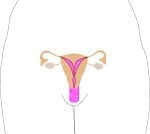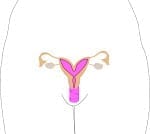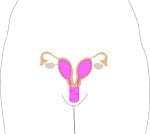Although it is not considered Infertility, losing pregnancies repeatedly generates as much or even more frustration. This diagnosis, known as Recurrent Pregnancy Loss (ERP), is made in couples who have lost 3 or more pregnancies. In these, the risk of a new loss is considerably increased and measures must be taken to prevent this from happening. PRE occurs in about 3% of couples. In general, these losses occur in the first half of pregnancy, before 20 weeks.




3. Immunological. The immune system, which normally produces proteins known as antibodies, which attack and destroy foreign agents to the body such as bacteria, fungi and viruses, suffer an imbalance and begin to produce antibodies against the body’s own components. In some cases, these components are structures known as phospholipids, which are involved in regulating blood clotting. These antibodies are known as antiphospholipid antibodies, among which the most important are anticardiolipin antibodies, lupus anticoagulant and Beta 2 glycoprotein. Its presence generates a state of hypercoagulability of the blood that causes the formation of small thrombi in the placenta and recurrent pregnancy loss. This is known as antiphospholipid syndrome.
4. Endocrine. Some pathologies that have to do with the alteration in the production of hormones in the body can generate recurrent pregnancy losses. Those with a clearer association are thyroid disorders, diabetes, alteration in prolactin secretion and a decrease in the ovary’s ability to produce progesterone, in what is known as corpus luteum deficiency.
5. Infectious. Some infections, mainly viral, can lead to isolated pregnancy loss. However, it is not proven that any of them generate recurrent pregnancy losses.
Many other alterations have been correlated with ERP, however few have enough medical evidence to support them and only those mentioned above deserve to be considered within the study of couples suffering from this condition.
The following tests should be included in this study:
1. Karyotype: An examination that allows the analysis of paternal and maternal chromosomes (structures in the nucleus of cells, in which genetic material or DNA is contained).
2. Maternal blood test for TSH, free T4, prolactin, glycemia, HbA1c (glycosylated hemoglobin)
3. Maternal blood test for serum progesterone in the second phase of the menstrual cycle, after ovulation or, failing that, an endometrial biopsy (tissue that lines the cavity of the uterus inside, where the embryos are seeded).
4. Maternal blood test for anticardiolipin antibodies type IgG and IgM, Beta 2 glycoprotein and lupus anticoagulant.
5. Evaluation of the uterine cavity by hysteroscopy (introduction of a lens vaginally into the uterine cavity), hysterosonography (evaluation by transvaginal ultrasound with the injection of fluid into the uterine cavity) or hysterosalpingogram (evaluation by the use of X-rays and the injection of a contrast medium into the uterine cavity.
After a complete study in couples with PRE, an obvious cause was found in 50% of couples. In the remaining 50% there is no cause, in what is known as idiopathic PRE. Most of the causes mentioned are likely to be successfully managed, through different types of treatments such as the correction and control of hormonal disorders, the use of medicines to reduce the tendency to form clots in the blood, surgical correction of uterine disorders, early supplementation in pregnancy with exogenous progesterone and/or the use of in vitro fertilization with genetic analysis of the embryos before transferring them to the uterus. In cases of idiopathic PRE, even if no cause is detected, the prognosis of these couples is very good since medical evidence has shown that up to 80% of them manage to have a full-term baby without being subjected to any type of medical treatment.
As you can see, PRE is a condition that generates deep emotional difficulties but thanks to scientific medical development, today it has a good chance of being dealt with successfully. These couples, although they face a huge sense of frustration, have an excellent chance of becoming parents with adequate medical management.

